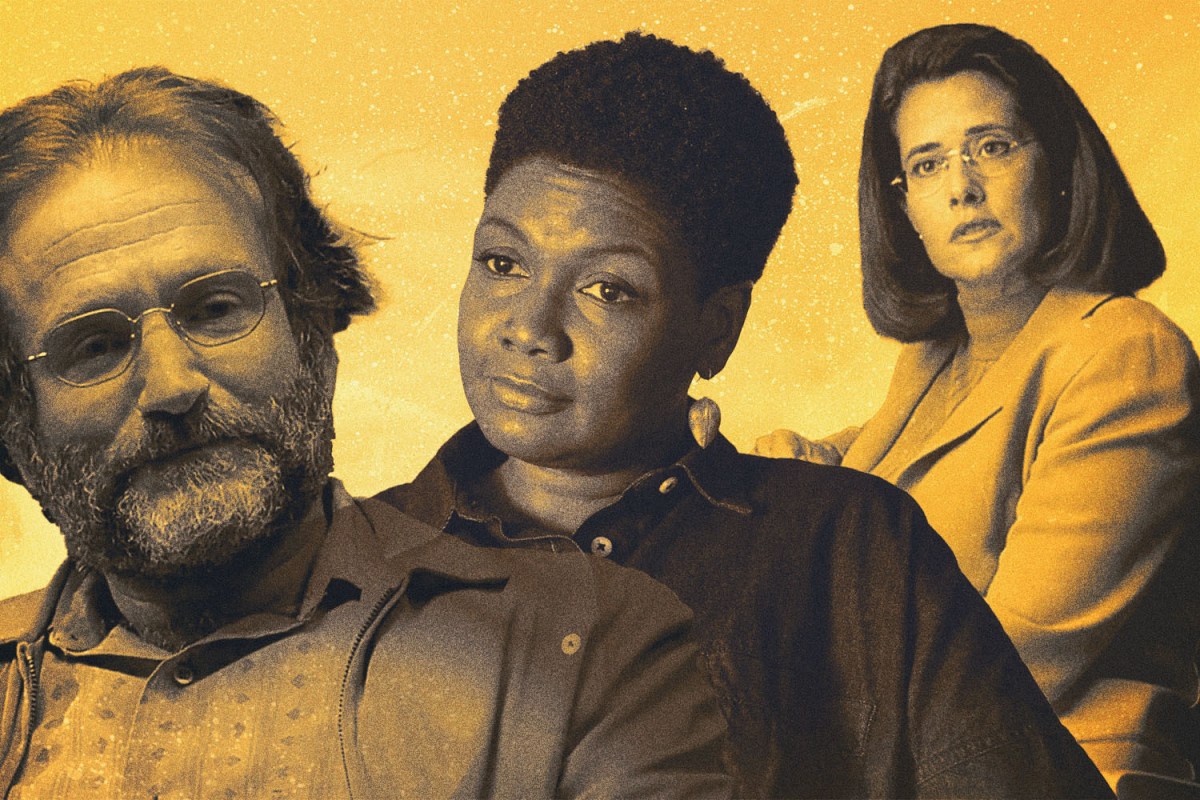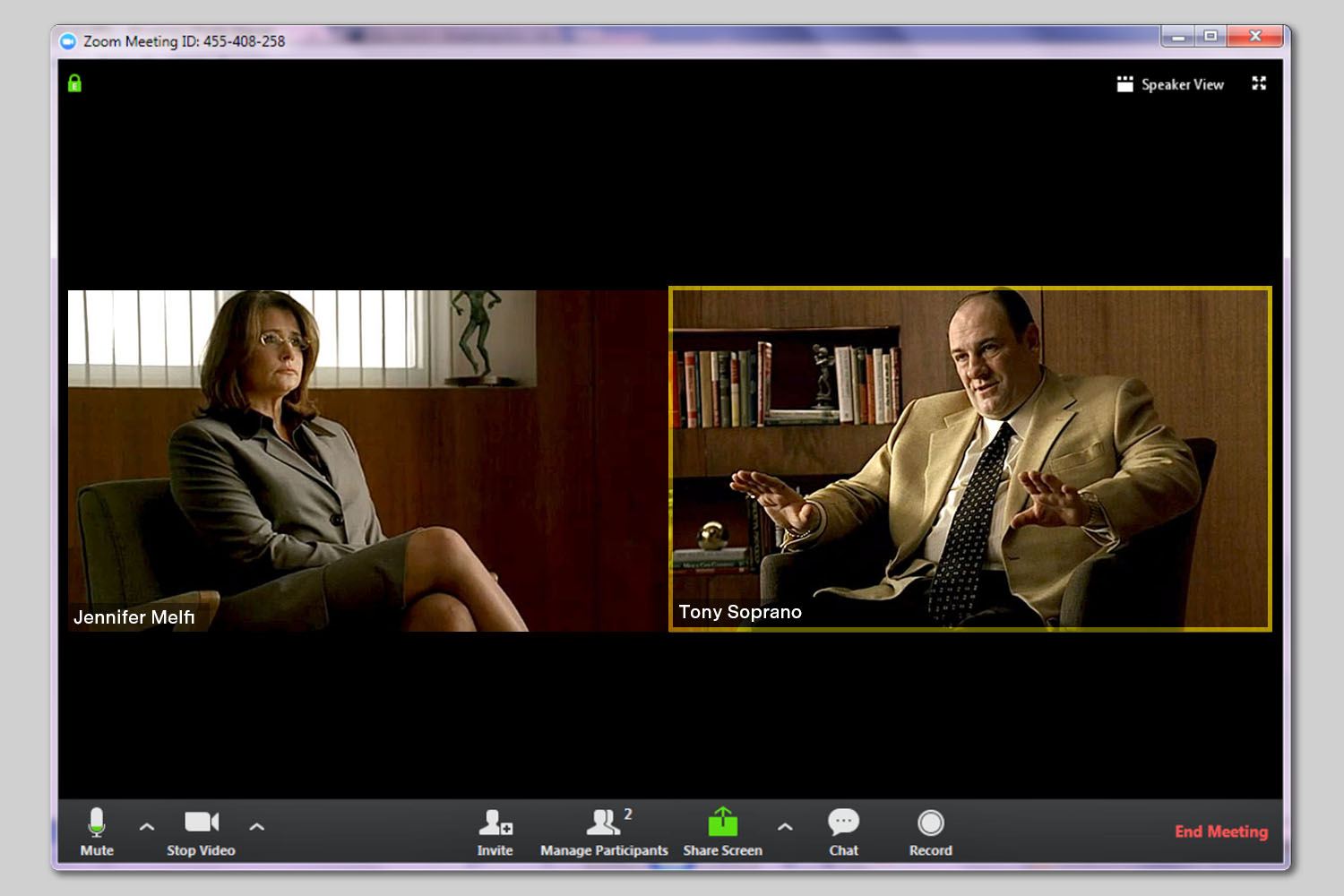This month, Apple TV+ dropped the first three episodes of The Shrink Next Door, a true crime-inspired miniseries about a psychiatrist who exploits his patients for his own financial gain. In terms of onscreen portrayals of therapists or other mental health professionals in TV and movies, he’s obviously a terrible example. But is he an outlier?
According to Jen Kelman, a therapist and mental health expert on JustAnswer, Hollywood has a tendency to sensationalize therapists, often portraying them as unethical or invasive to spice up their stories.
“It makes great TV and it makes great movies to be depicting the therapist as somewhat unstable or somewhat cuckoo without boundaries and making it about them,” she tells InsideHook. “So I see that portrayal very often, and hopefully there aren’t too many of those out there that are actually treating clients. I think that in terms of what Hollywood does — and it does it well — is you don’t want to see this boring depiction of just the therapist that’s encouraging, probing. You need that quirky edge to make it interesting. Is it always accurate? It isn’t.”
Part of that, of course, is a matter of logistics; therapy takes time, and progress doesn’t always fit a traditional linear narrative. “Usually shows like to show a progression,” Alison LaSov, a licensed family therapist and Advekit CEO, explains. “So character comes in with said problem, by episode three or four, the problem is alleviated and they’re kind of on their way. Whereas in real life, therapy has setbacks and regressions and kind of bumps along the road that maybe wouldn’t happen or be display during TV or film.”
Christina Furnival, a licensed psychotherapist and children’s book author, says that as a whole, the way therapy is depicted in pop culture has been woefully inaccurate.
“I think historically, it’s been pretty cringe-worthy,” she says. “As a therapist, when I see a therapist in movies or on TV, I often find myself wishing that they were portrayed more accurately. I feel like they give therapists a bad name. A lot of times, therapists are portrayed as aloof or uneducated or highly emotional, and lacking boundaries as well. And when you are a therapist, you know that you’ve dedicated your career to this. You’ve gone to years of schooling. You’ve taken licensing exams. You take continuing education to keep your license current. And you care very much about upholding the law as well as following the ethical guidelines of your professional code of ethics. When I see therapists in film and television, a lot of times I’m like, ‘Oh, I just wish they could get it right.’”
Because therapy deals directly with mental health, inaccurate depictions are arguably more harmful than getting certain details wrong about, say, a football coach. The stakes are too high, and as Furnival points out, what we see onscreen about therapy might have an impact on someone’s decision to seek help.
“What is great about having therapists in the media or portrayed in film and television is that it’s, in some ways, helping to de-stigmatize therapy,” she says. “If these main characters of the shows that we love and the movies that we love are going to therapy, it’s bringing a sense of reality to it, that all of us could use the support of somebody else. So in that way, I love it. On the other hand, I do think if therapists are portrayed as potentially not keeping confidential information confidential or bringing their own stuff into the therapy session, that does a disservice to the field. And I think people who are not already familiar with the therapy space would give it a second thought out of potential fear that, ‘Oh, maybe that’s how it really is.’”
With that in mind, we asked Kelman, Furnival and LaSov to weigh in on some of the most memorable fictional therapists from TV and the movies to tell us how they measure up. Check out their thoughts on Dr. Melfi, Dr. Frasier Crane and more below.
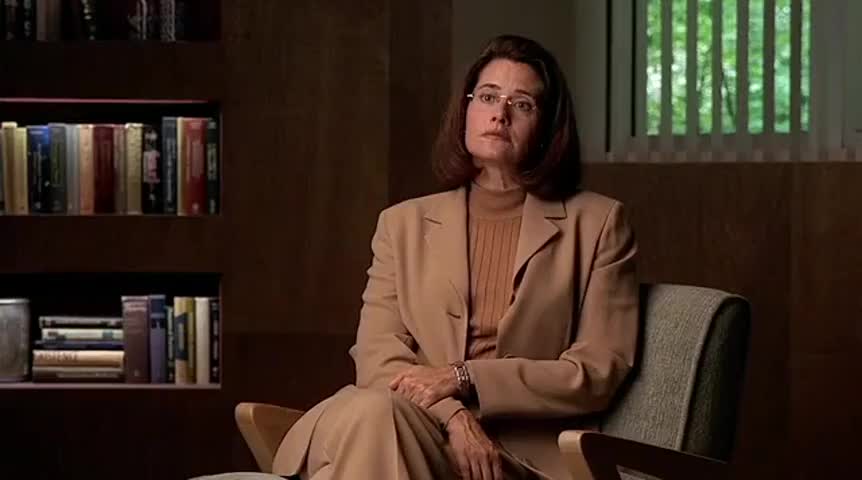
Dr. Jennifer Melfi (Lorraine Bracco), The Sopranos
Dr. Melfi is perhaps the most iconic TV therapist thanks to her interactions with Tony Soprano. And Kelman and LaSov agree that she deserves to be commended for the way she navigated her therapist-client relationship with the notorious mob boss.
“I liked her because she had to straddle between knowing what Tony Soprano was doing in life and trying to help him be a better human while also managing her own fears of what he actually did for a living,” Kelman says. “She was pretty good at managing that boundary. I think there was one where she was attacked and had some visions of him coming to protect her. As a therapist, there’s such a thing as transference and countertransference; transference simply is just what the client brings into the therapist and how they connect. And then the countertransference is what the therapist actually does, how they react to that. So the worst example would be therapists get idealized by their clients all the time. That’s a natural part of it. But if the therapist responds in that idealized way and furthers that, that’s where it could be not so great for the client. Dr. Melfi did a great job of managing that boundary, knowing what he did, trying to help him, trying to work through his emotions, because he was as closed as could be. She got him to be vulnerable. She was pretty terrific at what she did while maintaining that therapeutic boundary to help him as best as she could, given what he does.”
“I would say he threw a lot at her and I think her character really demonstrated what it looks like to maintain boundaries with someone who can be a rather difficult patient,” LaSov adds. “So I actually really appreciated how they wrote for that character. I think they really demonstrated healthy boundary setting and holding space for a pretty difficult personality.”
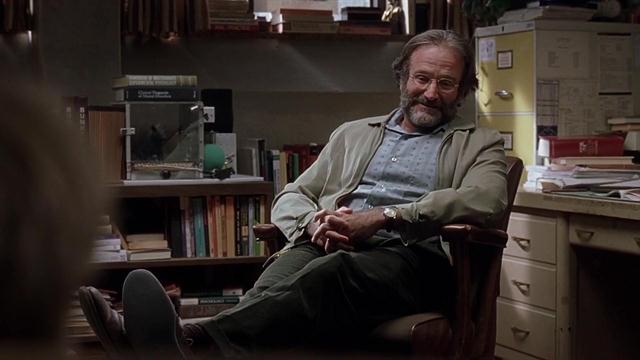
Dr. Sean Maguire (Robin Williams), Good Will Hunting
Robin Williams’s portrayal of Dr. Sean Maguire in Good Will Hunting drew more mixed reactions from our experts. Some were impressed by the strong rapport he had with Matt Damon’s character Will, while others pointed out that some of his methods were pretty unrealistic.
“For me, it felt like the most beautiful depiction of what therapy should and could be,” Kelman says. “I mean, if I give a title to what therapy is, it is healing within the connection. And so if you build a wonderful connection with your client, healing often ensues. So he did that brilliantly. It was all about connecting with his client and letting him have the — I hate this word because it’s been so overused and sort of vilified — but a safe space within that therapeutic environment for him to be vulnerable and for him to feel all of his feelings that he felt, being abandoned as a child and not having any deep connections. And so he built that deep connection because of what Dr. Maguire provided in that environment that allowed Will to heal and feel understood and heard and cared for. And that’s really where his growth came from.”
Furnival says she appreciates the way Maguire was able to connect with Will, but has some issues with the way he achieved it. “Dr. Sean Maguire is a character I think you kind of can’t help but love,” she says. “You feel for him because he’s lost his wife, and then the relationship that he builds with Will is full of intensity and compassion. In some ways he’s more of a sage mentor than he is a therapist because he also curses at Will. He sets a boundary, but he upholds the boundary very defensively and in a somewhat threatening way. And that just wouldn’t be how you would do that as a therapist. So I think it has faults, but I do like seeing that their relationship had depth and that Dr. Maguire was really trying to help him.”
The biggest issue with Maguire is the way he brings his own issues and life experiences into his discussions with Will, telling stories about his late wife.
“I think it’s nice that the characters were able to bond, and again, it’s fictional, but typically, therapy is really a safe space for the patient to navigate what they’re going through,” LaSov explains. “It’s not a typical relationship or friendship where you have a reciprocal back-and-forth dialogue about ‘How are you doing?’ or ‘What’s good on your life? What’s going on?’ It’s not like a shared sort of dialogue. It really is a safe space held for the patient to strictly navigate what they’re going through. And the therapist is there almost like a tour guide, helping them navigate that. So if the therapist starts to disclose too much, they’re taking time away from the patient during their session. And they’re detracting from the patient focusing on themselves. I will caveat that by saying some therapists disclose here and there to feel like they can relate to the patient. I think a good therapist will know if that will be well-received by a patient. If there are nuggets here and there, you might want to share in order to normalize things for someone or to appear relatable or that you can understand what they’ve been through without diving too deep into your own personal experiences.”
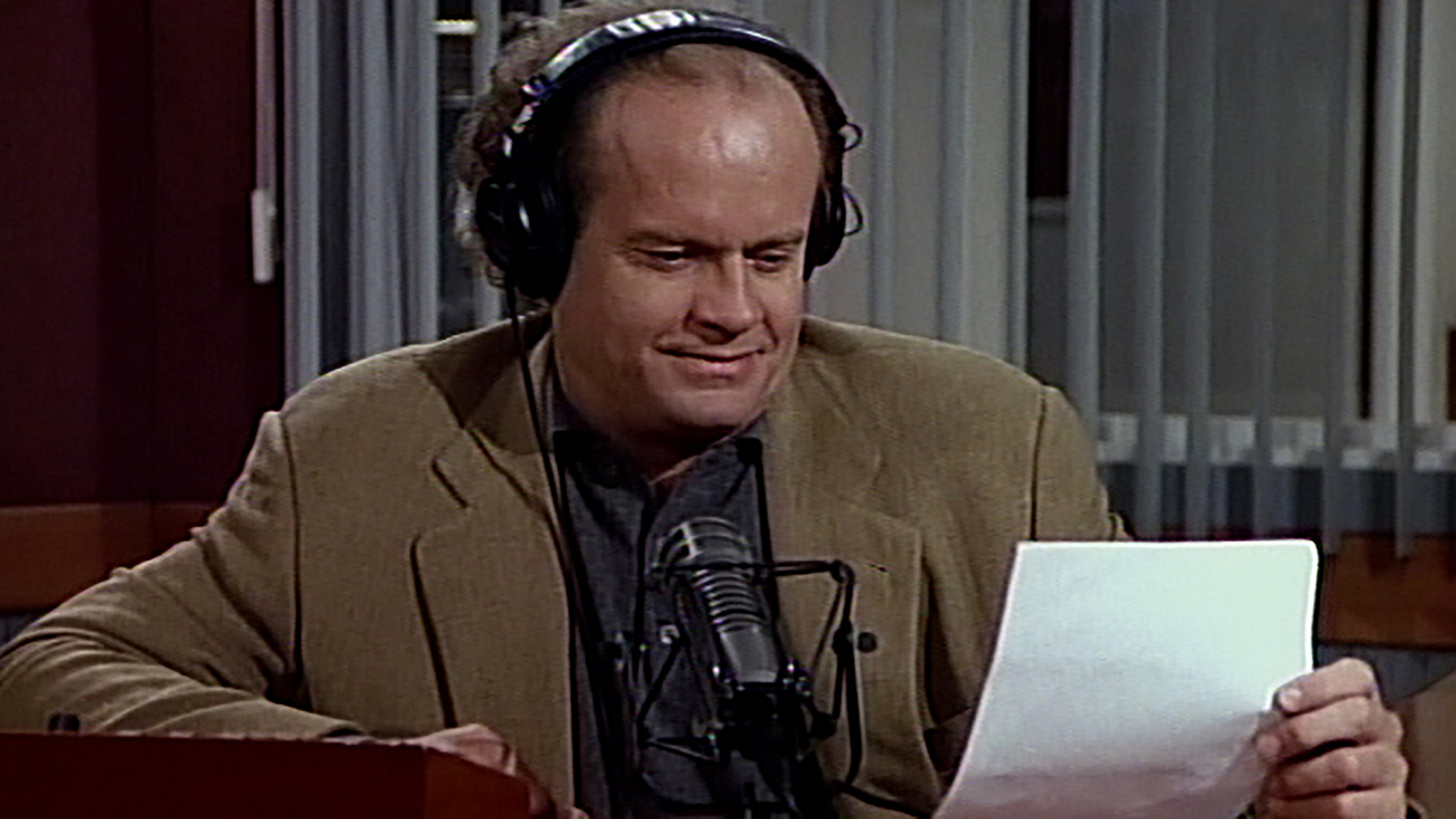
Dr. Frasier Crane (Kelsey Grammer), Frasier
Frasier Crane is a bit of an outlier here because he uses his expertise as a therapist to dole out advice on a radio show — something Kelman and Furnival warn isn’t an accurate depiction of actual therapy.
“One of the big misnomers about therapy is that we just tell our clients what to do,” Kelman says. “We don’t. We don’t give advice. We probe, we might guide, we ask further. But so Frasier, when he’s on a radio show, he’s going to be much more advice-driven because these people are calling in, you know, ‘I just broke up with my boyfriend and he’s desperately trying to get me me back. What should I do?’ And so he’s going to step in and give a little more direction than you would in a long-term therapeutic environment.”
“As a therapist, our goal is to build the relationship where we support the client to process their experiences, to recognize thought patterns, and to help them find their own answers in their life experience,” Furnival adds. “Our goal is not really to give advice, because our advice, no matter how well-intentioned it would be, would be full of bias, and also could not ever consider all of the factors, as we only know our clients for an hour, potentially, every week. So we don’t know all the details, as much as they do spill as much as they can to us. And that’s kind of the nature of a talk show, giving advice. But as a therapist or a psychiatrist or a psychologist, generally, we try and steer away from being that directive in someone’s life, because who are we to say what’s the best thing for them? Our job is to help them figure out, within themselves, what’s the best thing for them.”
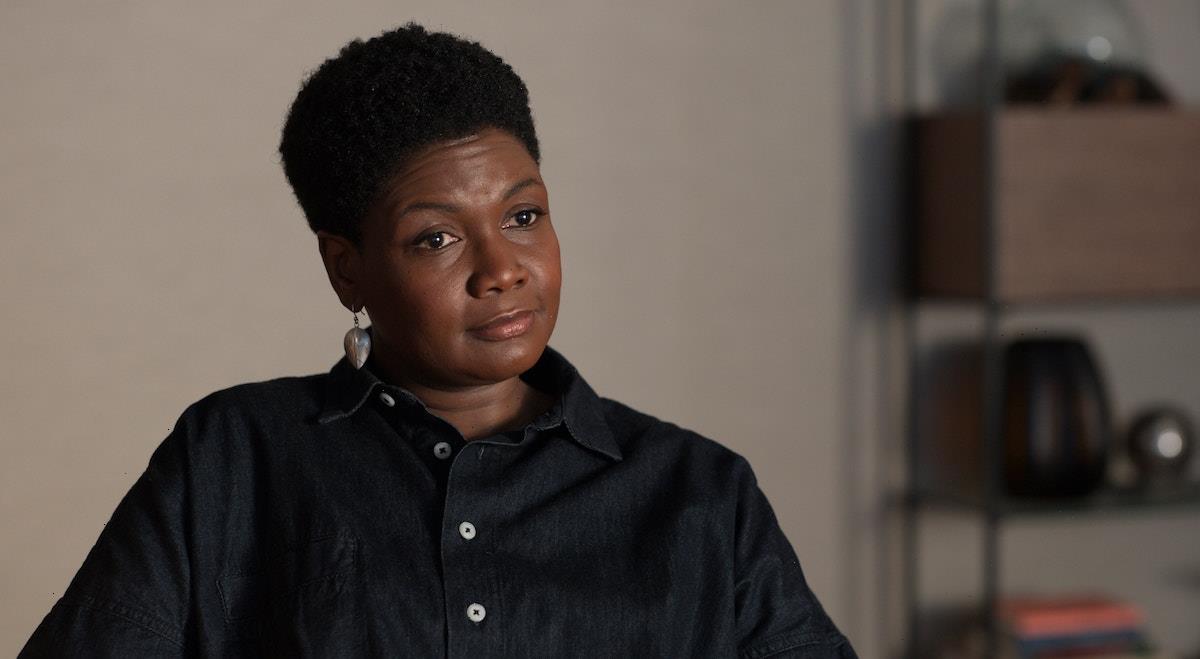
Dr. Sharon Fieldstone, Ted Lasso
While her scenes with Ted are certainly compelling, Furnival says what makes Dr. Sharon Fieldstone such a great character is what we see of her when she’s not in a session with the titular character. “What I like about how they’ve portrayed her is they’ve humanized her,” she explains. “I think a lot of times therapists are portrayed as very one-dimensional as well as black-and-white thinkers who are forceful with their opinions on their clients. And they show Dr. Fieldstone calling her own therapist and having her own phone sessions as well as consulting with other professionals when she’s stuck with what to do with Ted Lasso. And there’s a humanity to that, that she’s a human. This is her job, but she carries the weight of it and she wants to do her best. I just love that, because I think a lot of times, all you see when you see a therapist in a show is they’re a supporting actor figure, and they’re not meant to be in there as more than just a therapist. But as a therapist, we are a whole person. We have life outside of therapy. We do care so much about our clients and our patients. And so I really, really like that they’ve shown that side of her. However, they did show her using his identifying information and sharing very pertinent details to what was happening with him. And we wouldn’t do that. We would protect our client’s and patient’s information and protected health information for HIPAA.”
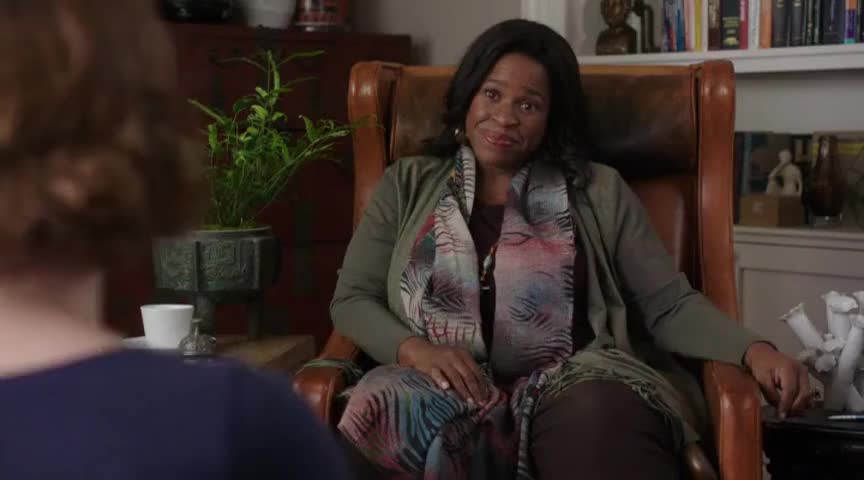
Dr. Noelle Akopian (Michael Hyatt), Crazy Ex-Girlfriend
“I liked her,” Kelman says. “I thought that she was involved. A lot of TV portrayals, to me, feel a little over-directing. When we direct our clients, it’s not real for them, meaning that if a client came to me who I had been seeing and said to me, ‘Well, I’m thinking of breaking up with my boyfriend because they did this, this and this,’ and if I stepped in and said, ‘Yes, I think you should,’ I am absolutely not helping my client, because they have not yet arrived at that decision. So let’s just say they took advice, broke up with the boyfriend, and now depression and anxiety hits, and it’s not something that they wanted. Then they are feeling, ‘Well, why did I do that?’ That wasn’t self-driven. So I find, in a lot of these shows, the depiction is of the therapist telling. So this one, I found her to be good, but I also found her to be a little telling as well. We have to balance guiding, directing by asking the right questions to get the person to figure out where they are, as opposed to telling a client what to do. Because it never, ever, ever is helpful.”
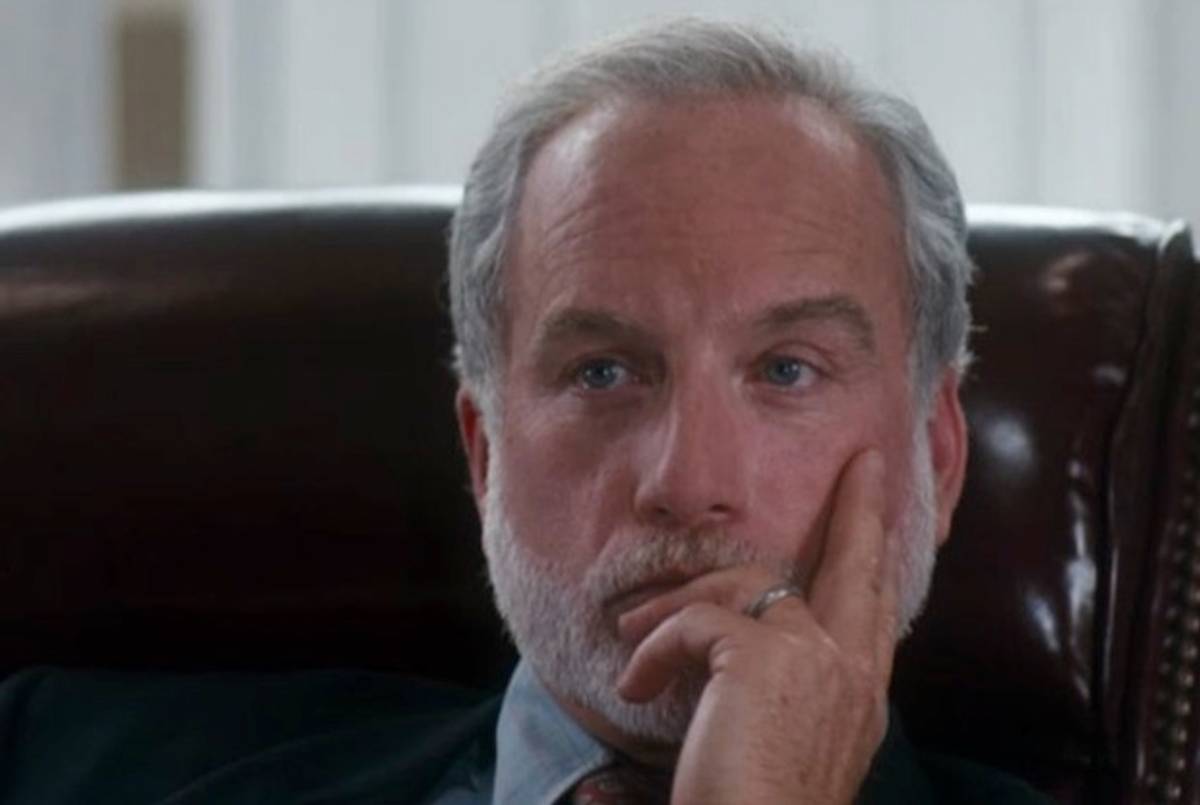
Dr. Leo Marvin (Richard Dreyfuss), What About Bob?
What About Bob? is obviously an example of an inappropriate therapist-patient relationship, as Bill Murray’s Bob crashes his therapist (Dr. Leo Marvin, played by Richard Dreyfuss)’s family vacation. But as Kelman points out, while it’s an exaggerated example, it’s natural for patients to become attached to their therapists.
“On some level, that’s a really wonderful depiction,” she says. “In the old days, and maybe this is true now, therapists took the month of August off. And that month was truly devastating for clients, because you have this relationship with your therapist and then poof, they’re gone. It also goes back to transference and idealization. So a client has all these feelings about their therapist, some good, some less good — anger, love, idealization. It just depends. It depends on what that client is struggling with. So now, Richard Dreyfuss left for August, you know, and so Bob’s identity, wherever he was in his process of therapy, is defined through his relationship with Dreyfuss. I hate to say it like this because if it’s written incorrectly, people are going to misunderstand it, but it’s almost normal that he has this desire to know about his therapist, to know about the therapist’s life. That’s extremely normal. My clients all wonder, and all my clients think my life is perfect. They absolutely could not even imagine that I have normal strife as a parent, that I get frustrated, any of the above. That’s the idealization. So here is Bob, left in the middle of his connection. He’s got all these wonderings about who his therapist is and what he’s like. On some level, those are real experiences that clients have when we go on vacation. It was hilarious and true on so many levels, because clients guess. They want to know.”
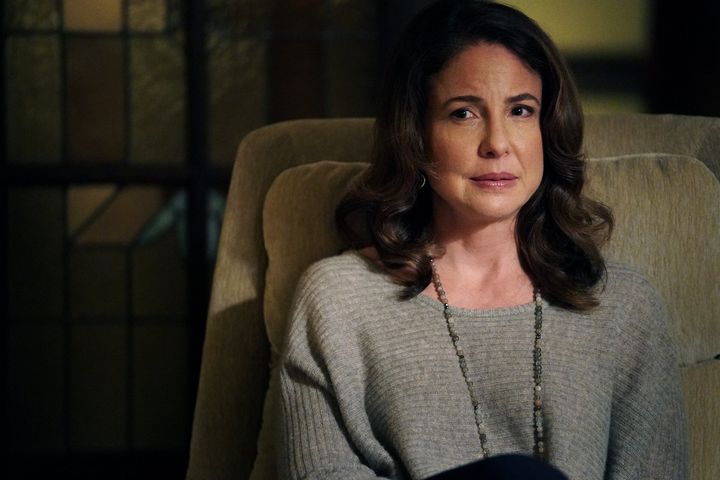
Dr. Amanda Reisman (Robin Weigart), Big Little Lies
Dr. Reisman on Big Little Lies is unique in that she begins as a couples therapist for Celeste and her husband — who we eventually learn is abusive. Picking up on the signs of abuse, Dr. Reisman starts seeing Celeste individually to help her get out of the situation. LaSov says that it’s not uncommon, but it does present some ethical dilemmas.
“That is something that can happen,” she says. “In therapy, it’s sort of a stylistic choice. Some therapists will not see a couple and then also see one of those members of the couple individually. Just as some therapists have a boundary of ‘I’m not going to see a child but then also see the child’s mother or the child’s sibling.’ Some therapists don’t want to see multiple members of the family; biases might be created. For example, in a couple, if you’re seeing them together, and then you see one of them one-on-one, you start to build a stronger relationship with one of the pairs, and the other member of the couple might feel like you know more of their partner’s side. And some couple therapists have a rule of, ‘I’m only going to see the couple together’ or ‘I’m going to see you guys individually, but not as a couple.’ And then some people are willing to make exceptions. Like in the Big Little Lies example, if they notice something is a red flag, they may offer to see the wife so that they can help her individually get the help that she needs.”
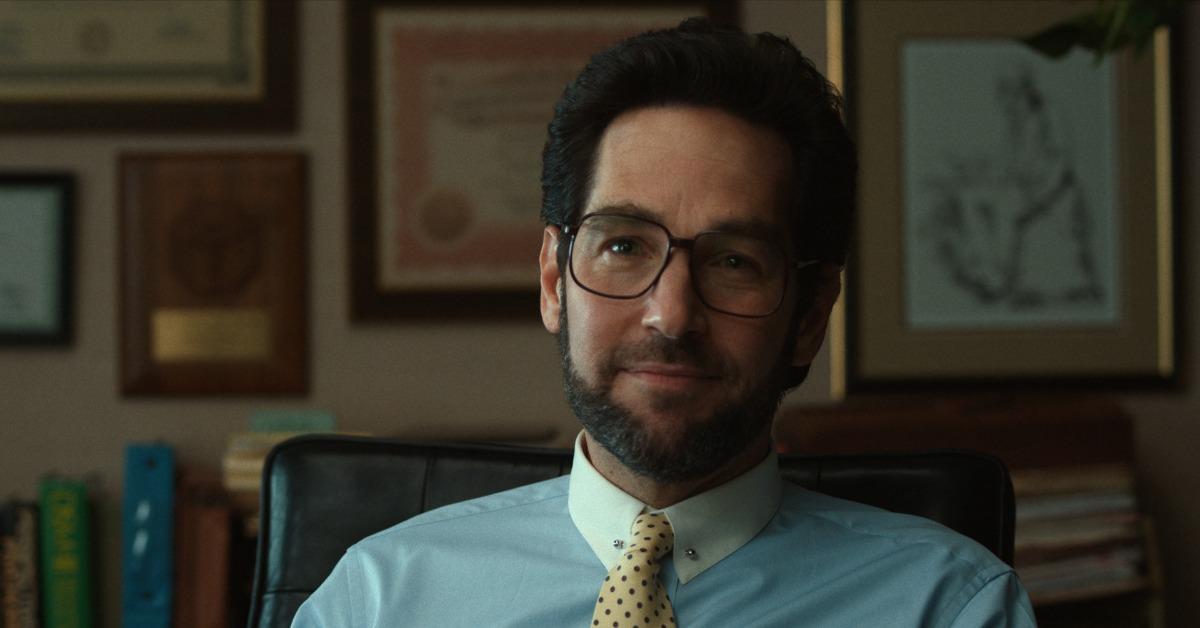
Dr. Isaac Herschkopf (Paul Rudd), The Shrink Next Door
Dr. Isaac Herschkopf is based on a real-life therapist who committed a slew of ethics violations, inserting himself into his patients’ lives in all sorts of inappropriate ways. Most of his transgressions on The Shrink Next Door are extremely glaring, like throwing an adult bar mitzvah for his patient and showing up at his workplace. But as Kelman points out, even his seemingly innocuous interactions are problematic.
“One of the things that stuck out for me was where he said, ‘I’m going to do something very unethical, and I’m going to give you a hug,’” she says. “So that isn’t necessarily unethical. But what was the wrong way about it was that it was coming from the therapist. And his statement was, ‘I’m a hugger.’ As a clinician, whenever it’s about I, we’re sort of at fault there, because it isn’t about us. It’s always about the client. So if, in some capacity, it was therapeutic for the client to be the hugger, you’d see it more on that end. That generally doesn’t happen, but [this case] was about this therapist’s own need. ‘I’m a hugger. This is unethical. I need to do this.’ And again, stepping over those boundaries, which could be very threatening and uncomfortable and dangerous and scary for the client, because you don’t know what the client is coming to you with. What if that client had been assaulted? What if that client had a history of sexual abuse, and immediately the therapist says ‘I’m a hugger,’ and goes in without asking? So those kinds of portrayals are difficult.”
The Charge will help you move better, think clearer and stay in the game longer. Subscribe to our wellness newsletter today.
